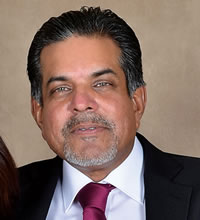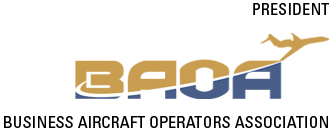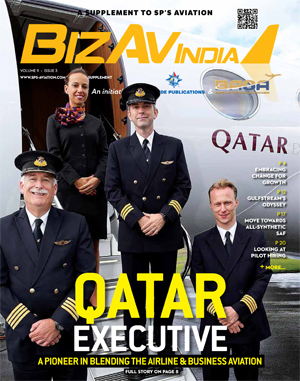Message from President, BAOA
 |  |
On Antiquated and Irritating Rules!
Rules and regulations are made to streamline processes and create order in the way we do our business. It is an extremely important facet of aviation, and it is absolutely critical that we lay down the ground rules and Standard Operating Procurers to ensure that there we carry out our operations in an orderly manner, which leads to a systematic and safe flying environment for all. However, it is essential that these rules must evolve and adapt with time. Unless they do so, they will lead to undesirable barriers, which beat the very purpose for which they had been initially created. Unfortunately, the way our systems work, modifying or scrapping a rule or a process, is more complex, and takes more time than it had taken to create it! In the rapidly changing environment, where technology and the business environment is changing so fast, there needs to be an easier way in which we can change or do away with an existing rule, or process, in a quicker time frame. Government rules, inherently, do not lend themselves to rapid changes. Two such examples are given in succeeding paras.
The first rule refers to the process of AOR (Air Operations Routine) Number, that Indian registered private aircraft need to acquire from the Ministry of Defence, if they have to operate from an airport that is operated by the Air Force, Navy or the Army, also know as “Defence Airfields”. This clearance is required by Indian registered General Aviation aircraft, if they are being flown by foreign pilots, or have foreign nationals as passengers on board. Most of these Defence Airfields have regular scheduled airlines operating from them, both domestic and International. However, the scheduled airliners can operate from these airports without an AOR, even if they are being flown by foreign pilots, or have foreign nationals as passengers on board. So, in effect, a passenger of foreign nationality can travel to Goa, Chandigarh, Pune or Srinagar via a Jet Airways, Emirates, or Indigo flight without any problems, However, if he needs to fly in private Indian registered aircraft, the operator needs a lead time of 30 days to obtain an AOR from the concerned branch of Service HQs to get the permissions. What could be more absurd! Similarly, all foreign pilots who fly Indian registered GA aircraft can do so only after a stringent security clearance process, and after obtaining a FATA from DGCA. A foreign pilot always must have an Indian co-pilot to operate VT registered aircraft. Why then, would he be required to obtain a fresh AOR every time he needs to operate from a Defence airfield? As the Ministry opens up more and more Defence airfields for civil flights to cater to the growing aviation needs of UDAN and connectivity, there is a need to get rid of this antiquated rule, which restricts non-scheduled and private aircraft from operating out of these airports. Recently Hindan, Adampur, Halwara etc. have been opened to civil flights, and more are to be added soon. The Ministry of Civil Aviation needs to coordinate with the Ministry of Defence and act on this quickly. All Defence airports with Civil Enclaves should be treated as Civil Airports for all operators for all operational purposes!
Unfortunately, the way our systems work, modifying or scrapping a rule or a process, is more complex, and takes more time than it had taken to create it! In the rapidly changing environment, where technology and the business environment is changing so fast, there needs to be an easier way in which we can change or do away with an existing rule, or process, in a quicker time frame. Government rules, inherently, do not lend themselves to rapid changes.
The second rule is more of an irritant, rather than causing any operational difficulties. Indian registered aircraft, whether scheduled or non-scheduled, are not allowed to serve alcohol to passengers while operating in Indian skies (No sir, not even a beer). While it is understood that it was a restriction on domestic scheduled carriers, to avoid unruly and drunk passengers on board, the logic of this not being allowed on non-scheduled and private jets seems to defy all logic. In my private conversations with many rule makers and officials, no one seems to give a befitting response to this. The only logic that seems to come to mind is to make life more difficult for the users of private aircraft and harass the operators on sudden tarmac checks! It’s almost like saying “see you can buy your private jet, but I still get to control what you can and what you cannot drink on board!” The policymakers should apply logic and applicability and should not paint everything with same brush. I wonder if anyone amongst the rule makers will take this up. I hope so.
Please fasten your seat belts and enjoy this edition of BizAV India. Please feel free to contact me at rohitkapur@baoa.inwith your feedback and suggestions. I look forward to getting your inputs on how to address the issues at hand.
Happy Landings and Safe Flying!
| Rohit Kapur President, Business Aircraft Operators Association |





